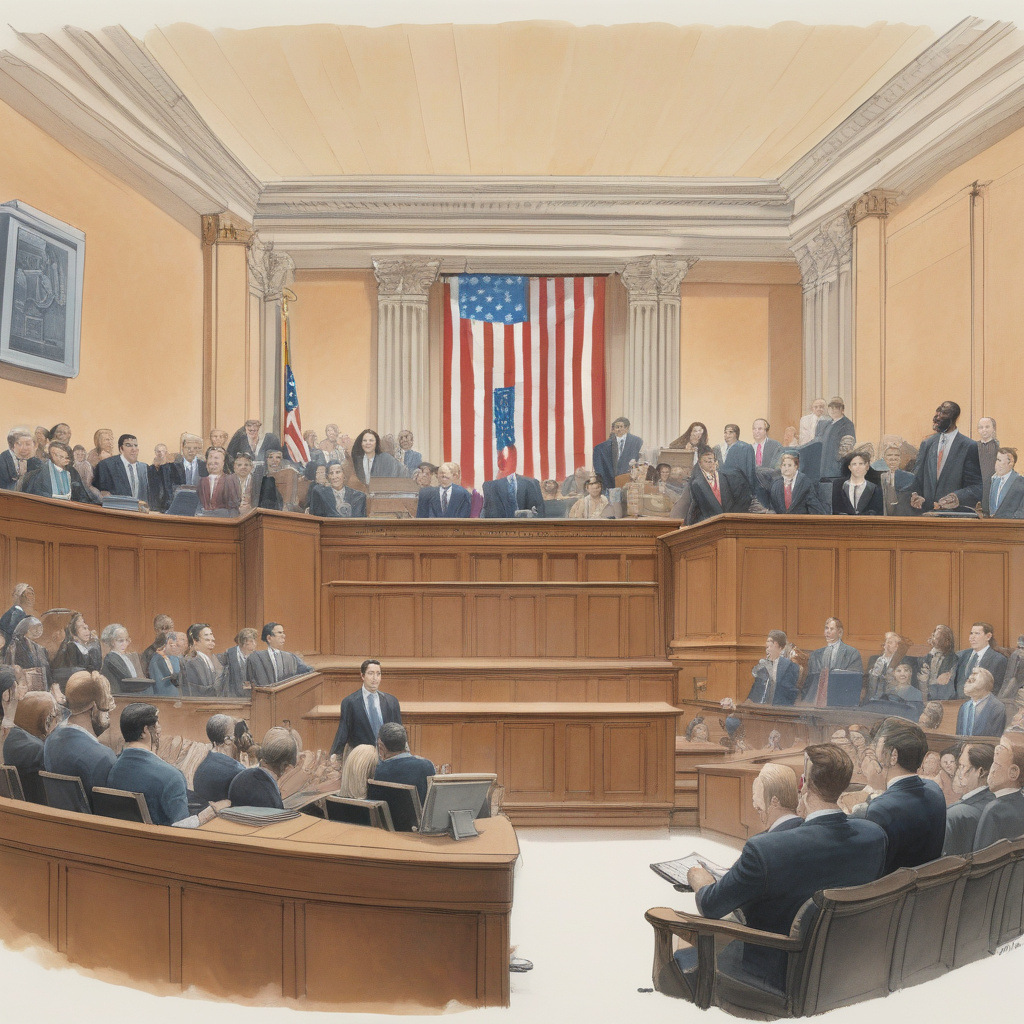Judge Allows US Antitrust Case Against Apple to Proceed
In a significant development in the tech world, a judge recently ruled to allow the United States antitrust case against Apple to move forward. The Justice Department’s lawsuit accuses the tech giant of stifling competition and inflating prices through a ‘walled garden’ strategy. This decision marks a crucial step in holding one of the most influential companies in the world accountable for its business practices.
The lawsuit centers on Apple’s tight control over its App Store, the digital storefront where users can download applications for their Apple devices. The tech behemoth requires developers to use its payment system for in-app purchases, thereby taking a commission of up to 30% on each transaction. This practice has sparked criticism from developers and regulators alike, who argue that it limits competition and results in higher prices for consumers.
Apple’s ‘walled garden’ approach refers to the company’s ecosystem of hardware, software, and services that are designed to work seamlessly together. While this has been a key selling point for Apple products, it has also raised concerns about anti-competitive behavior. By restricting users to its own App Store and payment system, Apple has been accused of shutting out potential rivals and unfairly disadvantaging competitors.
The lawsuit filed by the Justice Department seeks to address these allegations and ensure a level playing field in the digital marketplace. If successful, it could have far-reaching implications for Apple’s business model and the broader tech industry as a whole. The case is part of a growing push to rein in the power of big tech companies and promote competition and innovation.
Apple has vigorously defended its practices, arguing that they are necessary to maintain the security and integrity of its platform. The company has also pointed to the benefits it provides to developers, such as a global customer base and robust tools for creating and distributing apps. However, critics maintain that Apple’s dominance gives it undue influence over the market, stifling innovation and limiting consumer choice.
The decision to allow the antitrust case to proceed signals a potential turning point in the ongoing debate over tech regulation. As lawmakers and regulators grapple with the immense power wielded by companies like Apple, Google, and Amazon, cases like this one take on added significance. The outcome could set a precedent for how antitrust laws are applied in the digital age and shape the future of competition in the tech sector.
Regardless of the final verdict, the case against Apple serves as a reminder of the importance of upholding fair competition in the marketplace. By holding companies accountable for anti-competitive practices, regulators can help foster innovation, lower prices, and empower consumers. As the legal battle unfolds, all eyes will be on the courtroom to see how this high-stakes showdown between the government and one of the world’s most valuable companies plays out.
antitrust, Apple, competition, tech industry, regulation












